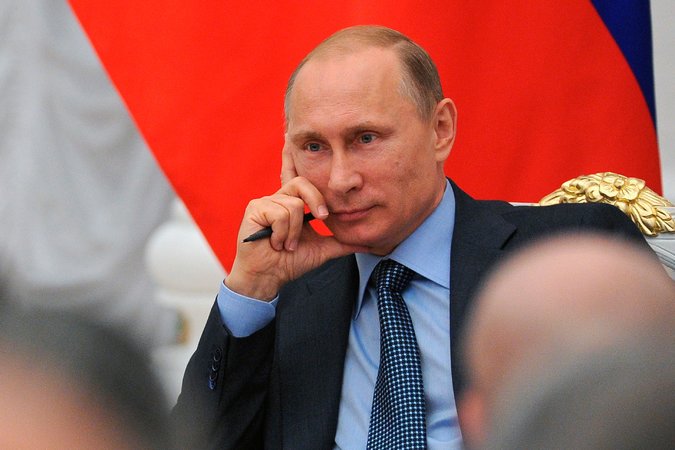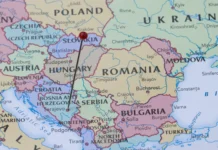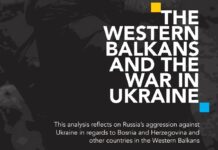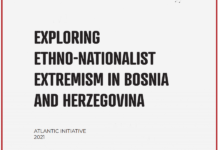Source: New York Times | By: Marjorie Connelly
◊ In the wake of its military intervention in Ukraine and annexation of Crimea, Russia is widely disliked in Europe, the Middle East and the United States, according to a Pew Global Attitudes poll released on Wednesday. The leadership of President Vladimir V. Putin inspires little confidence, the survey found. And while most Russians think Mr. Putin will do the right thing in international affairs, few people in the other countries surveyed have faith in him.
The negative views of Americans and Europeans have become particularly pronounced toward Russia over the past year, rising by double digits in many countries. In Poland, for example, 81 percent of those surveyed had an unfavorable opinion of Russia, compared with 54 percent in 2013.
The British were evenly divided about Russia in 2013: 38 percent had a favorable opinion and 39 percent were unfavorable. Now, only 25 percent had a positive view of Russia, while 63 percent had a negative view. Greece, where 61 percent of those surveyed had a favorable opinion of Russia, was the only European country where opinions were basically unchanged.
Not surprisingly, Ukrainians’ attitudes toward Russia have changed significantly. In 2011, which was the last time Pew conducted a poll there, more than eight in 10 Ukrainians had a favorable opinion of Russia. Now only 35 percent of respondents have a positive view. Within Ukraine, there are deep divisions based on geography and language. Residents of the western part of the country were most unfavorable toward Russia, while Russian-speakers in the east were less unfavorable. Russia is increasingly disliked in Latin America, although the increase is not as striking as in the United States or Europe. The African nations surveyed by Pew generally viewed Russia fairly favorably, with the exception of South Africa, where 51 percent had a negative view. In Asia, most of those surveyed in Bangladesh, China, and Vietnam had a positive opinion of Russia, while most Japanese respondents had a negative view.
Russia has been unpopular in the Middle East for the past several years, although attitudes can differ by religious group. For example in Lebanon, most Sunnis and Christians had an unfavorable opinion, while Shiites looked more favorably on Russia.
As with opinions about Russia overall, attitudes toward Mr. Putin’s handling of international affairs were consistently negative in the United States and across Europe. Eighty percent of Americans said they had little or no confidence that Mr. Putin would do the right thing with his foreign policy, as did a majority of adults in every European country surveyed. In Russia, though, 83 percent said they trusted their leader’s handling of world affairs, up from 69 percent two years ago.
Most Americans and Europeans say the Russian government does not respect the personal freedoms of its people, a negative image that has increased significantly in Britain, Spain and the United States since Pew last asked the question in 2008.
On the other hand, a majority of Vietnamese and Chinese have a positive view of Moscow’s record on civil liberties. In 2008, Russians were evenly divided on their view of their country’s respect for personal freedoms: 45 percent said the Russian government did respect personal freedoms and 44 percent said it did not. There is a significant change in the latest poll: 57 percent of Russians now said they thought Moscow respects civil liberties.
The Pew Research Center surveyed 48,643 adults March 17 to June 5 in 44 countries, including Russia. Nearly all interviews were conducted after Vladimir Putin’s statement on March 18 that Russia would annex Crimea. Interviews were conducted by telephone or in-person and the margin of sampling error is plus or minus 3 or 4 percentage points for each country.
◊ Original article: http://nyti.ms/1qF5trL
July 9, 2014








